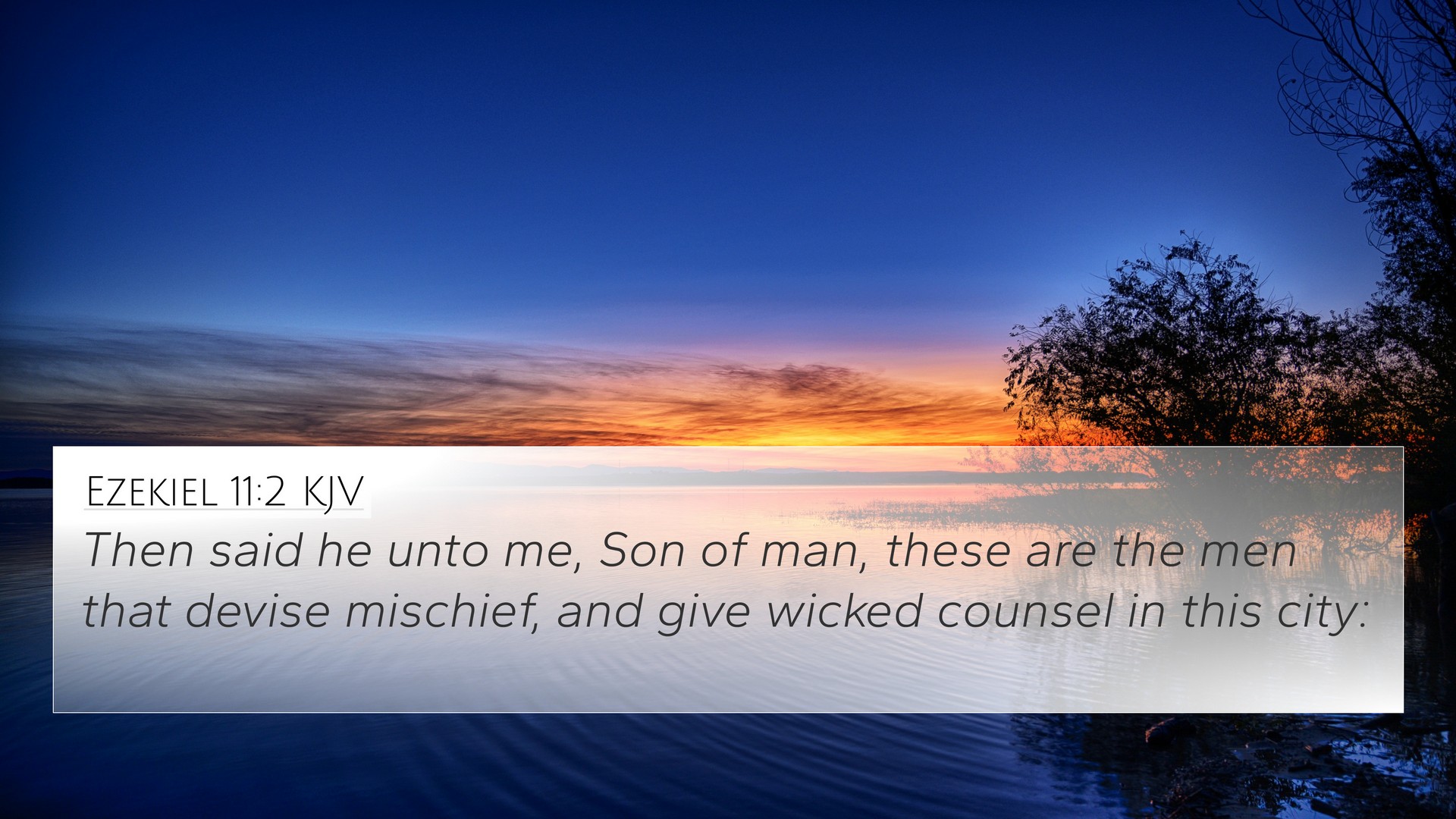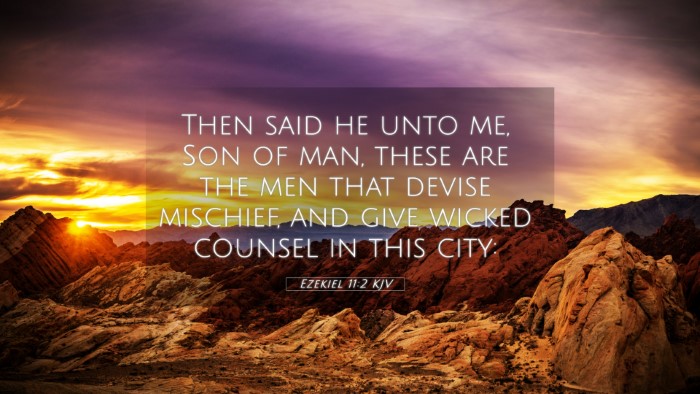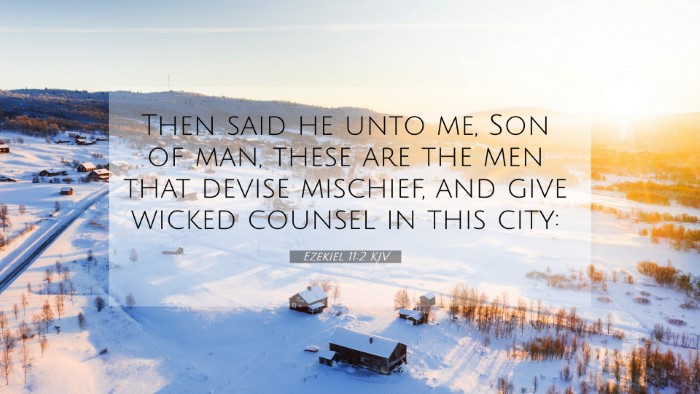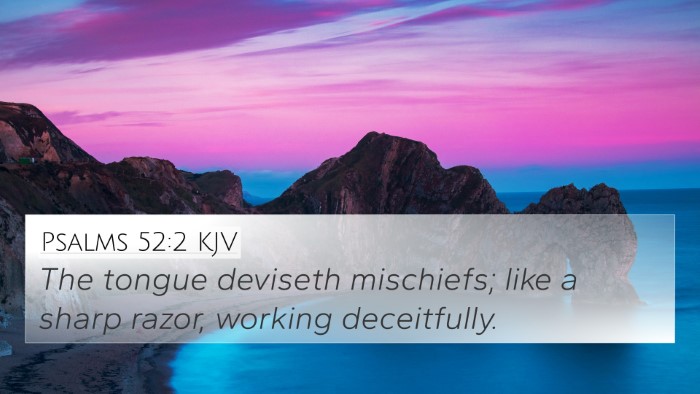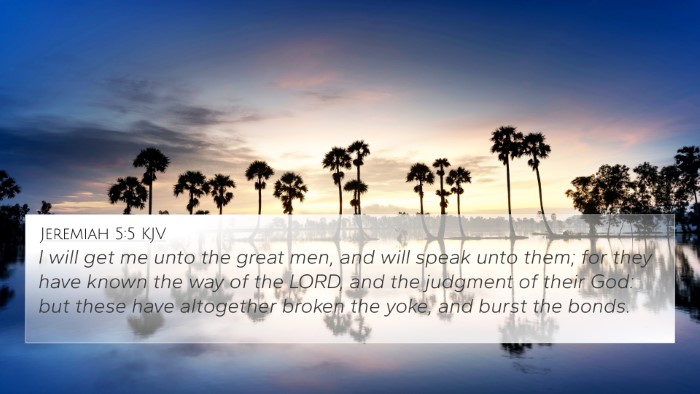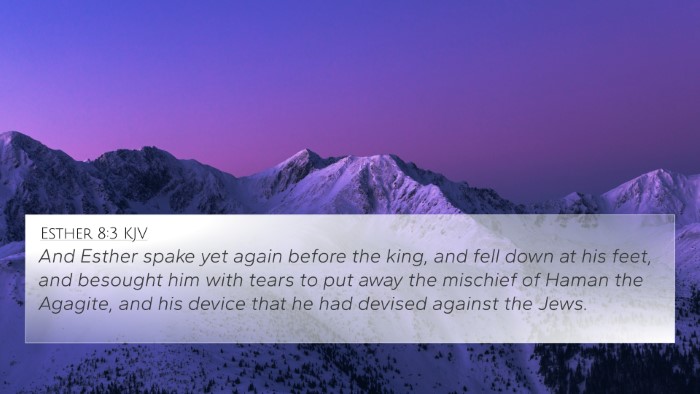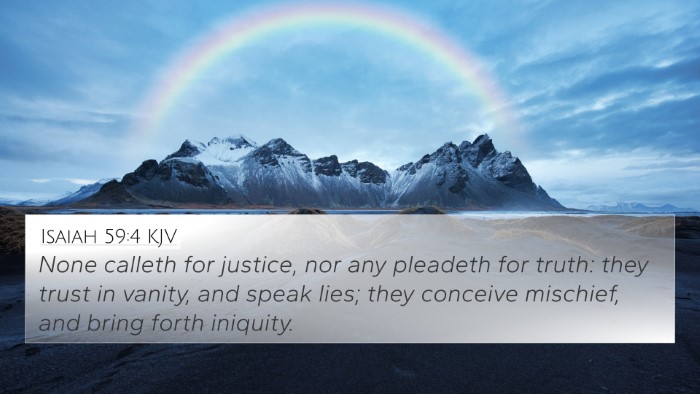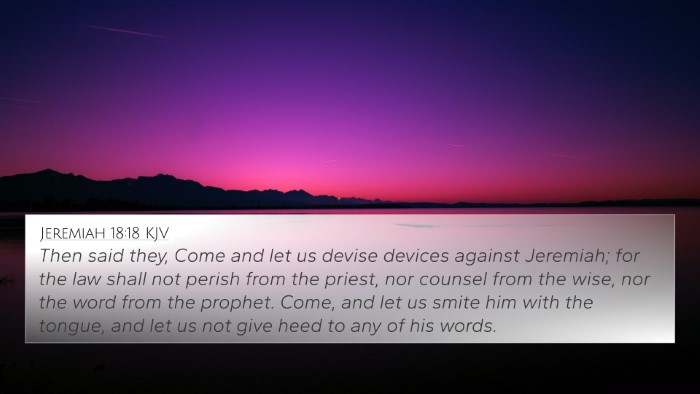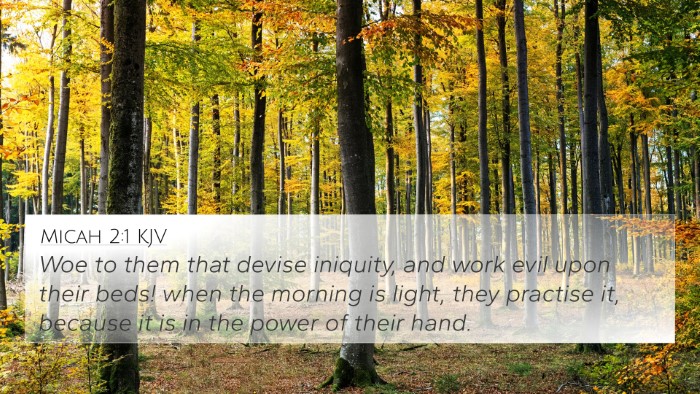Ezekiel 11:2 - A Comprehensive Interpretation
Ezekiel 11:2 states: “And he said to me, Son of man, these are the men that devise mischief and give wicked counsel in this city.” This verse highlights the presence of corrupt leadership and the detrimental impact on the people of Jerusalem. Below, we delve into a detailed analysis, drawing insights from several public domain commentaries.
Contextual Background
The prophet Ezekiel delivers messages that reflect the spiritual state of Israel, particularly during the Babylonian exile. This specific verse portrays a group of leaders whose malicious plans and evil advice threaten the welfare of the community.
Commentary Insights
-
Matthew Henry:
Henry emphasizes the nature of these leaders, indicating that their counsel is filled with deceit and manipulation. He notes that the evil they devise stems from a lack of reverence for God and a disregard for His commandments. Their actions serve as a warning to the righteous about the dangers of following corrupt authorities.
-
Albert Barnes:
Barnes provides a deeper understanding of the term "mischief," linking it to disaster and ruin that the counsel of these leaders brings upon the city. He suggests that the verse serves as a prophetic warning, indicating a call for the people to discern wisdom from folly and to seek godly counsel in contrast to the wickedness that prevails.
-
Adam Clarke:
Clarke focuses on the implications of such mischief and the societal effects. He points out that when leaders conspire for evil, the moral decay of the entire community is imminent. His commentary stresses the importance of righteous leadership and the need for divine intervention to restore justice.
Bible Verse Cross-References
Understanding Ezekiel 11:2 can be enriched by identifying connections between Bible verses. Here are some significant cross-references:
- Proverbs 1:10-16: A warning against following the path of sinners.
- Jeremiah 14:14: Reference to false prophets who prophesy lies and lead the people astray.
- Matthew 15:14: Jesus speaks of blind guides leading the blind, emphasizing the consequence of poor leadership.
- Micah 3:5: A condemnation of those who lead God’s people astray with deceptive talk.
- Ezekiel 22:27: Describes the leaders of the people as wolves, devouring the helpless.
- Romans 1:21-22: Discusses the consequences of rejecting God’s truth and turning to false wisdom.
- Titus 1:10-11: Paul warns of rebellious individuals deceiving others for dishonest gain.
Thematic Connections and Analysis
Through the lens of theme, Ezekiel 11:2 invites analysis of the ramifications of leadership influenced by wickedness:
- The significance of righteous counsel.
- The role of prophetic voices in exposing corruption.
- The duality between the fate of the wicked and the preservation of the righteous.
Conclusion: The Importance of Divine Wisdom
In conclusion, Ezekiel 11:2 serves as a stark reminder of the influence of leadership on society. The combined insights from Matthew Henry, Albert Barnes, and Adam Clarke provide readers with a comprehensive understanding of the spiritual implications of corrupt counsel. It encourages believers to seek wisdom from God and discernment in their everyday decisions. In a world filled with voices, it becomes crucial to cross-reference biblical texts, allowing scripture to provide clarity and guidance.
Tools for Bible Cross-Referencing
For those interested in digging deeper into the scriptures and finding connections, consider utilizing:
- Bible concordance for keyword searches.
- Bible cross-reference guide for thematic study.
- Cross-reference Bible study methods for structured learning.
- Bible reference resources to broaden your understanding.
